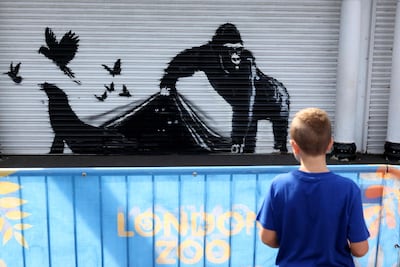The UAE is globally renowned for its ambitious vision to become a leader in artificial intelligence-driven innovation across sectors, including smart cities and health care.
AI technology is rapidly revolutionising the education sector, too. I’ve witnessed changes firsthand over the past decade. AI-powered applications can now provide personalised learning experiences for pupils and analyse educational data to enhance teaching methods. New technologies will transform classrooms for years to come.
This new age for educators holds incredible opportunities for the youth but also brings significant challenges. As AI becomes increasingly ubiquitous, it is crucial that the K-12 curriculum emphasises the development of an essential human skill: the capacity to think critically.
Integrating AI into schools requires nurturing active, analytical thinking rather than merely creating passive consumers of technology. An over-reliance on AI risks stifling essential human skills, leading to a generation overly dependent on technology and misguided by the notion that machines can think for you.
Critical thinking involves analysing information objectively to form reasoned judgments. It requires questioning assumptions, identifying biases, assessing evidence and making logical connections between ideas.

In today’s information-rich but discernment-poor reality, teaching pupils critical thinking skills is more important than ever. The rapid advancement of AI presents opportunities to revolutionise education. But without a deliberate focus on fostering critical thinking, we risk creating a generation overly dependent on technology.
To address these challenges, I urge education policymakers to implement national standards for critical thinking that align with AI education goals, including mandatory courses on AI literacy and ethics. This is not simply a matter of imposing this revolution on educators; it requires informed and thoughtful planning.
Policymakers and school administrators play a crucial role in this transition and must be well-informed and prepared. Curriculum reforms should reflect the necessity of fostering critical thinking alongside AI proficiency. This means integrating critical thinking exercises and projects across all subject areas, from mathematics to art, incorporating AI where appropriate.
Professional development for educators is fundamental to collective success, meaning it must be integrated into pedagogical learning, not merely offered as an add-on workshop. Teachers need strategies to effectively integrate critical thinking into their classrooms, considering AI use cases. Professional development programmes should include hands-on workshops, collaborative planning sessions and access to AI tools that educators can experiment with in a supportive environment.
This includes training teachers to introduce discussions that encourage deep thinking, designing assignments that require critical analysis and creating an environment where questioning and exploration are valued. Additionally, teachers should be provided with resources and ongoing support to develop their skills in practice. They cannot be expected to figure this out on their own, especially amid the hype and group anxiety around assessments.
Imagine a classroom where AI seamlessly integrates with daily lessons, providing real-time feedback while pupils analyse data to solve complex problems. This is the future we're aiming for, but it requires a foundation of critical thinking.
Assessments must measure the application of critical thinking in various contexts. Traditional testing methods that do not capture a student's ability to think critically are a disservice to collective development. Assessments should include tasks that require pupils to analyse information, draw conclusions and justify their reasoning with or without AI.
Project-based assessments, where pupils work on real-world problems and present their findings, can provide a more accurate measure of their critical thinking abilities. These types of assessments encourage pupils to engage deeply with the material, understand the underlying principles, and apply their knowledge creatively and thoughtfully. By working on tangible projects, pupils learn to balance the use of AI with critical analysis and ethical considerations, ensuring they develop a well-rounded skill set.
Moreover, fostering a culture of critical thinking in schools goes beyond the classroom. It involves creating an environment that encourages curiosity, where pupils feel safe to express their ideas and where diverse perspectives are valued. Schools should promote activities that stimulate critical thinking, such as debates, problem-solving competitions, and collaborative projects. Encouraging pupils to take on leadership roles and engage in community service can also help them apply their critical thinking skills in real-world situations. This is what great schools already do, but we now need to do it with AI.
As the only country with a dedicated Ministry of Artificial Intelligence – a university in Abu Dhabi dedicated to AI – the Mohamed bin Zayed University of Artificial Intelligence (MBZUAI), 22 chief AI officers across Dubai government entities, and numerous other government-led initiatives, the UAE is well-positioned to balance AI advancements and critical thinking skills in the classroom. The goal is to create a balanced approach where technology supports learning, but the core focus remains on nurturing the intellectual capabilities of pupils.
While AI offers remarkable educational advancements, the heart of learning must remain human. By prioritising critical thinking, we prepare pupils not only to navigate but to thrive in the complex world ahead. Critical thinking is not just an academic skill; it is a life skill that prepares pupils to face the challenges of the future with confidence and competence.








